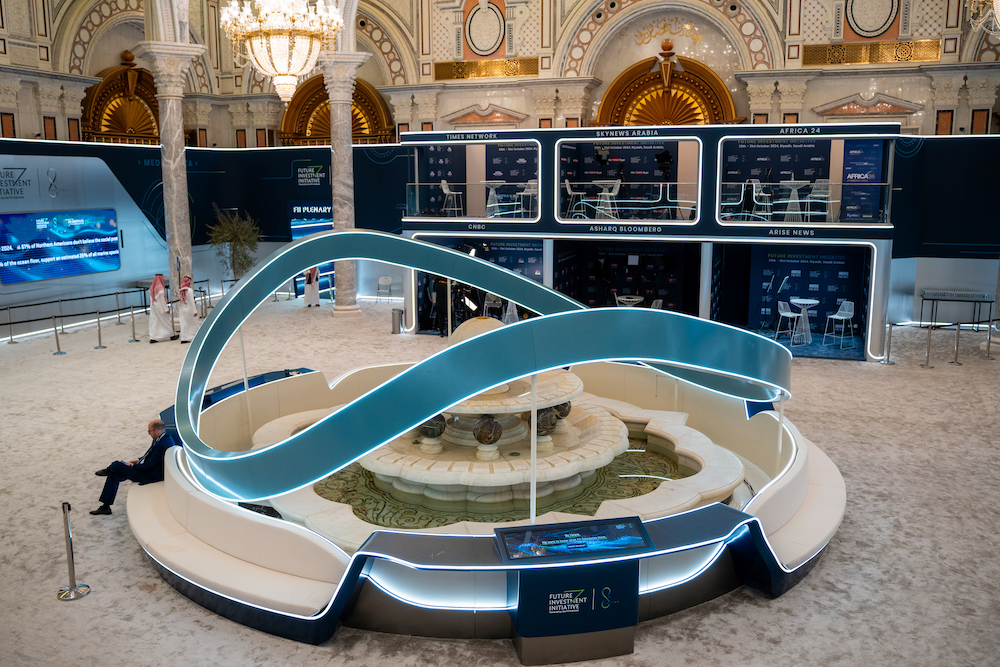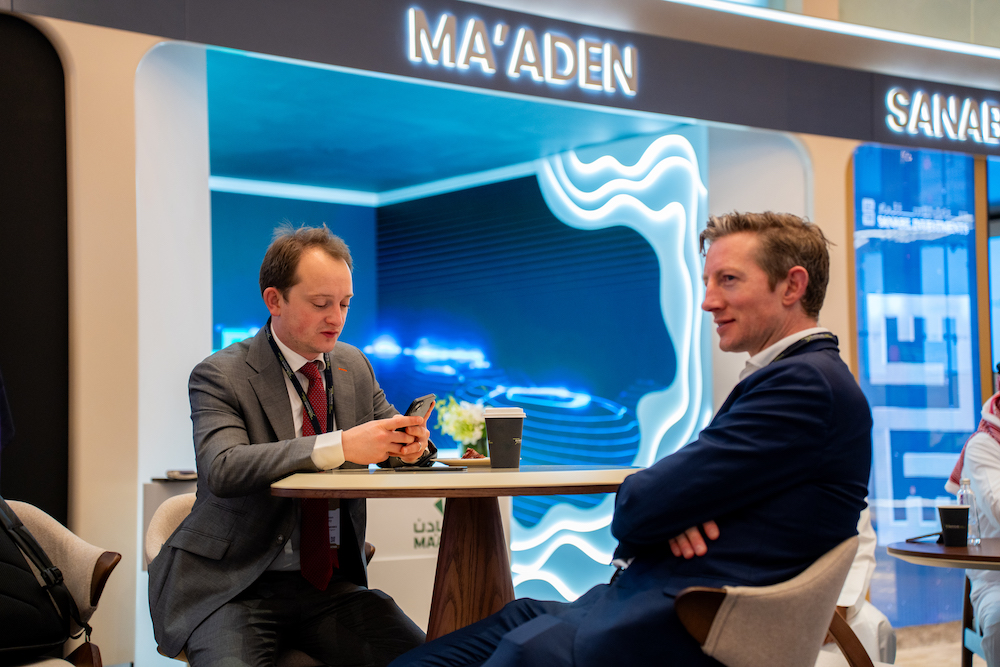RIYADH: Global leaders called for revitalized approaches to economic diplomacy at the Future Investment Initiative, urging adaptable tools to navigate today’s complex international landscape.
During a panel on the second day of the event, policymakers and experts emphasized the need for modernized frameworks that support cross-border collaboration.
Highlighting Saudi Arabia’s success as an investment hub, Bahrain’s Minister of Finance and National Economy, Shaikh Salman bin Khalifa Al-Khalifa, said the rapid rise in foreign direct investment into the Kingdom, reflecting the impact of the gathering.
“The real testament to the success of FII,” he said, “is that if we look at the first time it was hosted, and now it’s in its eighth edition, foreign direct investment to the Kingdom of Saudi Arabia has increased by more than 20-fold.”

Saudi Arabia is hosting the eighth edition of the Future Investment Initiative summit in Riyadh. AN/Abdulrahman bin Shalhuob
The minister also emphasized the need to modernize the multilateral frameworks that have governed global relations since World War II.
With an increasingly complex global landscape, Al-Khalifa pointed out that existing institutions may struggle to meet today’s challenges without substantive reform. He added that effective sanctions require a solid infrastructure: “We cannot use sanctions unless they are part of a robust system; otherwise, they don’t achieve their purpose.”
Former US Secretary of the Treasury Steven Mnuchin echoed these concerns, pointing to the effectiveness of tariffs and sanctions as flexible tools within economic diplomacy.
Reflecting on the broader historical impact of trade liberalization, he said: “I think in a long period of time, global trade in lowering tariffs was the right thing to do and create global opportunities.”
However, he noted that recent shifts have required more selective use of these tools to address modern economic dynamics. “If you talk about the US-China example, tariffs were used for diplomacy for a long period of time,” he said, citing their role in recalibrating trade relationships.
Mnuchin went on to underscore the strategic importance of sanctions, which have been a central element in US foreign policy over recent decades. “There’s no question that sanctions are a very important tool,” he said.

Saudi Arabia is hosting the eighth edition of the Future Investment Initiative summit in Riyadh. AN/Abdulrahman bin Shalhuob
“A lot of countries didn’t like our long reach, but there’s no question, you know, sanctions were a very, very important tool, whether it was Iran or whether it was North Korea — they were used very effectively,” Mnuchin added.
He further emphasized the significance of tariffs as economic tools, although he acknowledged they are unlikely to replace traditional forms of taxation.
Jean-Yves Le Drian, chairman of the French agency for AlUla Development and a representative of the French government, introduced the idea of developing new tools to tackle emerging issues that transcend borders, such as climate change and artificial intelligence.
“The COPs could perhaps be the testing ground for what international organizations could become,” he said, positioning climate action forums as potential incubators for broader global reforms.
In addition to discussing the need for adaptable economic tools, Al-Khalifa highlighted Bahrain’s own strides in strengthening its international alliances, including a recent comprehensive agreement with the US.
“We recently signed the comprehensive security integration prosperity agreement with the United States, a long-term strategic ally,” he noted, describing it as a significant enhancement of US-Bahrain cooperation.






























